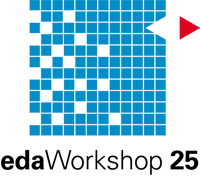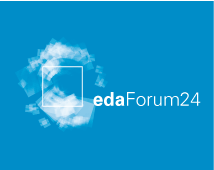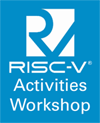Projects: General Aspects
The development of new microelectronics technologies and the exploitation of the economic opportunities that they bring are critically dependent on a process of continuous improvement in both design methodology and design automation tools. Advances in design technology are the foundation of innovations in microelectronics that can help solve or mitigate many of the major challenges and issues that our society faces.
The edacentrum’s core business is to provide comprehensive support for research and development (R&D) projects concerning design technology for microelectronics devices and systems. The edacentrum supports collaborative R&D projects at both the national and international level — and always with a critical mass of industry leaders among the project partners. In addition, The edacentrum supports Cluster Research Projects, which bring together the expertise and capabilities of leading research institutes to develop fundamentally new approaches for applied research in industry.
A complete list of all projects currently supported by the edacentrum is available here.
German Projects
In close co-operation with leading companies and research institutes, as well as with the German Ministry for Education and Research (BMBF), the edacentrum actively participated in the development of a major, multi-pronged German R&D program, from 2002 to 2011. During this time, the edacentrum gave essential support to more than 30 industry-led projects focused on microelectronics design methodologies and their applications. In addition, the edacentrum manages and advises EDA cluster research projects at national level. Both types of projects are funded by the BMBF under the German R&D framework "IKT 2020 - Forschung für Innovationen".
German Research & Development Projects (R&D Projects)
The edacentrum supports German R&D projects related to EDA that tackle problems arising from the requirements of Germany’s industrial and business sectors. Such projects arise from the progress and changes in microelectronics, in both important application fields and international science and business. Proposals for R&D projects are made by companies at various points in the value chain or by the edacentrum itself. The purpose of these projects is to benefit the German economy with quick and effective results. In semiconductor companies and design houses, the results are applied directly to chip designs, and also stimulate further independent activities in these research areas.
A list of the German R&D projects currently supported by the edacentrum is available here.
Cluster Research Project
The edacentrum supports and supervises Cluster Research Projects funded by the German Ministry for Education and Research (BMBF), enabling industry and research teams to maximize the benefit from these projects. Specifically, research teams benefit from financial support for their work on advanced technologies of (potentially) future industrial importance. They also receive from industrial mentors both feedback and access to industrial applications. Industry benefits by having access to the leading research resources essential for achieving major technology breakthroughs.
Typically 5 to 8 years ahead of practical application, industrial Cluster Research Projects focus on extremely innovative and, to some extent, speculative technical and application approaches. The participation of industrial partners ensures the industrial applicability of the results. Such partners also provide financial support as well as intensive technical support, both of which are organized and co-ordinated by the edacentrum.
German R&D Framework ICT 2020
Information and communication technologies (ICT) drive more than 80% of the innovations in Germany’s leading application fields, such as automotive, medical technology and logistics. Consequently, the German Government’s High-Tech Strategy has identified ICT as one of the most important areas of innovation.
The Federal Ministry of Education and Research (BMBF) and the Federal Ministry of Economics and Technology (BMWi) support the R&D framework programme ICT 2020 to consolidate and expand Germany’s technological lead in the ICT sector. The overall intention is to pursue a seamless innovation policy within and across industry branches, addressing all links in the innovation chain. The larger vision is to exploit ICT to secure and enhance Germany’s position as a competitive location for research, production and employment.
International R&D Projects
Projects that require contributions from international partners in order to achieve their goals are typically realized as part of European research programmes. Those projects that plan to submit their results to standardization bodies are one example. The edacentrum supports European R&D projects that are part of the research programmes of the European Commission and of the CATRENE and ENIAC programmes.
A list of the international projects currently supported by the edacentrum is available here.
EU Projects
One oft he most important sub-programmes of the Seventh Framework Programme of the European Commission (FP7) is the programme “Cooperation”, which classifies projects into the following sub-categories, each with a dedicated budget:
Collaborative Projects, which includes
- "Large-scale integration projects (IP)" and
- "Small or medium focused research actions:
Specific Targeted Research Project (STReP)" - Network of Excellence (NoE)
- Coordination and Support Action (CSA), which includes
"Coordination or networking actions (CA)" and
"Support actions (SA)"
While Collaborative Projects target research and development activities, NoE and CSA focus on “networking” and the support of the community of experts in the respective area.
ENIAC Projects
The funding for ENIAC projects is provided directly by national governments. This national funding is complemented by additional funding from the European Commission. The national authorities and the European Commission are jointly responsible for funding decisions. The work performed in ENIAC projects by German partners is funded by the German Ministry for Research and Education (BMBF) as separate German projects under the German R&D framework "IKT 2020 - Forschung für Innovationen".
The edacentrum liaises closely with the ENIAC organisation, including the initiation of new projects as well as support of current projects, thus enabling very efficient implementation of ENIAC projects with German project partners.
projects is provided directly by the Public Authorities. This national funding will be completed by additional funding provided by the European Commission. The National Authorities and the European Commission are responsible for the funding decisions. The work performed in ENIAC projects by German partners is funded by the German Ministry for Research and Education (BMBF) as separate German project under the German R&D framework "IKT 2020 - Forschung für Innovationen".
edacentrum closely liaises with ENIAC organisation, including initiation of new projects as well as support of running projects, thus enabling a very efficient realization of ENIAC projects with German project partners.
CATRENE Projects
The funding for CATRENE projects is provided directly by the national governments the countries involved, which have the exclusive responsibility for all decisions with respect to the funding of CATRENE projects. The work performed in CATRENE projects by German partners is funded by the German Ministry for Research and Education (BMBF) as separate German projects under the German R&D framework "IKT 2020 - Forschung für Innovationen".
The edacentrum liaises closely with CATRENE organisation, including initiation of new projects as well as support of current projects, thus enabling very efficient implementation of CATRENE projects with German project partners.










